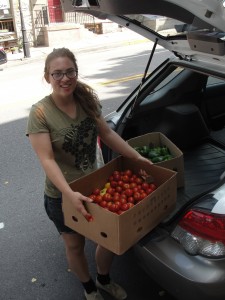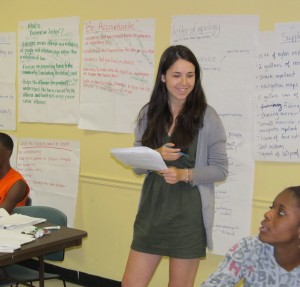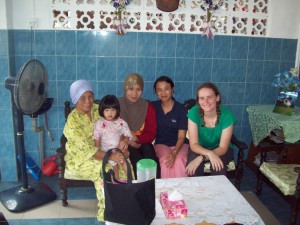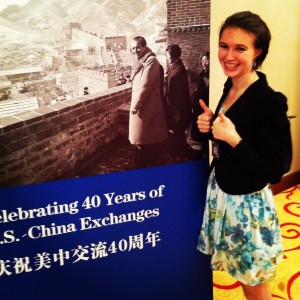I know, it’s not really required of me to make a speech, but I had some Big Feelings about why you should apply for the PCA position, posted below.
The first time I’d been to the Center for Education in Action — or Adirondack House at all — was to interview for a job as a Peer Career Ambassador. (Spoiler alert: this job.) It was the Fall of my sophomore year. I’d never been to Drop-In hours. I’d never heard of Drop-In hours. I’d never logged into MOJO. I tried once, during J-Term of my freshman year, when everyone on my hall was freaking out like a 1920s disaster film about their summer plans (because INTERNSHIPS!) but it tried to make me answer one of those spam-prevention prompts and I was like “eh.” Plus, I felt about “career guidance” the way that many people do about therapy. I was convinced that I didn’t really need it, that it was for strugglers, those incapable of navigating life on their own. I had turned 21 within four weeks of coming to college as a freshman and held a full-time job during the two years I took “off” before school. (I paid ELECTRIC BILLS, okay? I was an ADULT. It was REAL LIFE, deep in the trenches.) I was like, “Career planning? I got this.” (Spoiler alert: I did not have “this” as much as I thought I had “this.”)
Getting this job might have been one of the better things that happened to me during my first two years at Middlebury. This might be one of the best student jobs on campus. This is a super biased claim that I can’t really back with, you know, “science,” but I do know that the people I work with are really, really nice; I get to work on some pretty great and self-directed projects; I get paid to write and research career advice. (Blog! I get paid to blog! It’s not real life). Plus, it always smells like cinnamon in this office. (Seriously, why does it? Tracy, Annie? Is this your doing?) And at the risk of sounding super dramatic, working here has changed the way I access resources on this campus and view the EIA as an ally in my “personal career journey,” and, ironically, I’ve come to treat Drop-In hours exactly like therapy. Because they kind of are. Therapeutic, I mean.
Click here to view the Peer Career Ambassador description, and to submit your application by Friday, February 22, 2013.





